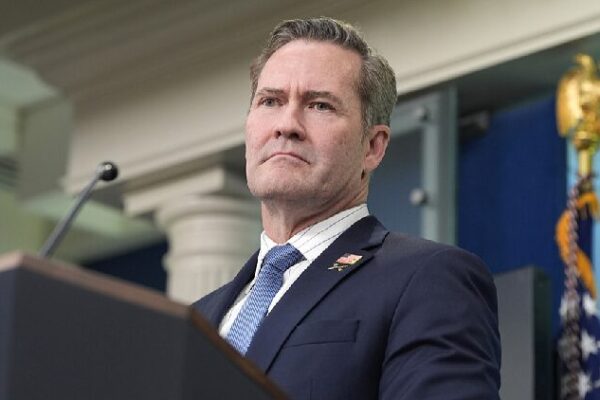In a surprising turn of events, Jeffrey Goldberg, the editor-in-chief of The Atlantic, found himself in a secret group chat discussing a US military strike on Houthi forces in Yemen. Goldberg was inadvertently added to a Signal messaging group with senior national security officials, giving him access to highly sensitive information just hours before the operation took place.
An Unexpected Invitation
Goldberg recounted the incident on Monday, explaining that on March 11, he received a connection request on Signal from someone named Michael Waltz—the name of the US national security advisor. Initially unsure if it was the official account, Goldberg was surprised when, two days later, he was added to a group chat titled “Houthi PC Small Group.”
Access to Sensitive Plans
The group, which appeared to include high-ranking officials like Vice President JD Vance and Defense Secretary Pete Hegseth, was discussing imminent military actions. “What I will say, in order to illustrate the shocking recklessness of this Signal conversation, is that the Hegseth post contained operational details of forthcoming strikes on Yemen,” Goldberg wrote.
Realization and Aftermath
As the conversation unfolded, Goldberg started to believe the chat was genuine, especially after the air strikes occurred exactly as described. Concerned about the breach, he reached out to officials to confirm if the Signal thread was authentic and why he was included.
“This appears to be an authentic message chain, and we are reviewing how an inadvertent number was added to the chain,” responded Brian Hughes, spokesperson for the National Security Council.
Official Responses
When questioned about the incident, President Donald Trump said he was unaware of it, adding, “I don’t know anything about it. You’re telling me about it for the first time.”
Defense Secretary Hegseth denied any wrongdoing, stating, “Nobody was texting war plans. And that’s all I have to say about that.” He also criticized Goldberg, calling him “a deceitful and highly discredited so-called ‘journalist.'”
Public Outcry and Legal Concerns
The mishandling of sensitive information has sparked widespread criticism. Former Secretary of State Hillary Clinton reacted with disbelief, while Democratic lawmakers like Senator Jack Reed expressed serious concerns. “Military operations need to be handled with utmost discretion,” Reed stated. “The carelessness shown by President Trump’s Cabinet is stunning and dangerous.”
Senate Minority Leader Chuck Schumer called for a full investigation, highlighting the potential risks to national security.
Potential Legal Implications
Legal experts suggest that coordinating national security actions over Signal may violate several provisions of the Espionage Act. Additionally, setting messages to disappear could contravene federal records laws.
“Waltz and the other Cabinet-level officials were already potentially violating government policy and the law simply by texting one another about the operation,” Goldberg noted in his article.
Looking Ahead
The incident raises serious questions about operational security and the protocols followed by senior officials. As investigations potentially unfold, the situation serves as a cautionary tale about the importance of secure communication in matters of national security.
Reference(s):
How a U.S. journalist ended up in secret chat on Yemen strike plans
cgtn.com








